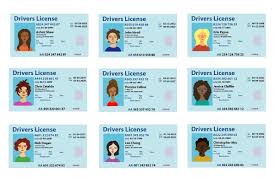Fake Identification
Outline:
Introduction
- The concept of fake identification
- Overview of the article’s content
What is Fake Identification?
- Definition and purpose
- Common uses
Legal Implications and Risks
- Understanding the legal consequences
- Risks involved in using fake IDs
Market Trends in Fake Identification
- Overview of the current market
- Popular types of fake IDs
- Trends influencing demand
Product Features of Fake IDs
- Design specifications
- Security features
- Variants (e.g., scannable, state-specific)
Target Audience for Fake IDs
- Demographics and psychographics
- Use cases for different groups (students, travelers, etc.)
How to Acquire a Fake ID
- Step-by-step process
- Researching reputable sources
- Evaluating quality and features
- Making a purchase
- Payment methods and security tips
- Step-by-step process
Aftercare and Support
- Understanding after-sales service
- Troubleshooting common issues
Psychological and Social Considerations
- The empowerment of having a fake ID
- Social dynamics and peer perceptions
Frequently Asked Questions (FAQs)
- Addressing common concerns and queries
Conclusion
- Recap of key points
- Encouragement to make informed choices
Content Expansion
1. Introduction
Fake identification has become a significant topic of discussion in today’s society, often associated with youth culture and nightlife. This guide aims to provide an in-depth understanding of fake IDs, shedding light on their purpose, features, and the broader market landscape.
2. What is Fake Identification?
Fake identification refers to documents created to imitate legitimate IDs, often used to bypass age restrictions or for identity verification purposes. Common uses include:
- Entering bars and clubs
- Purchasing age-restricted items
- Verification for online services
3. Legal Implications and Risks
Using a fake ID can carry severe legal consequences, including fines and potential criminal charges. Understanding these risks is crucial for anyone considering obtaining a fake ID. Additionally, users may face personal repercussions, such as loss of credibility and social stigma.
4. Market Trends in Fake Identification
The market for fake IDs has seen notable changes, influenced by technological advancements and societal attitudes. Key trends include:
- Increased demand among young adults
- A shift towards online purchasing
- The rise of high-quality, scannable IDs that mimic legitimate documents
5. Product Features of Fake IDs
High-quality fake IDs often include:
- Design Specifications: Authentic-looking graphics and layouts that resemble official IDs.
- Security Features: Elements such as holograms, microprinting, and barcodes to enhance authenticity.
- Variants: Options tailored to specific states or uses, including scannable IDs that can pass verification checks.
6. Target Audience for Fake IDs
The primary users of fake IDs often include:
- Students: Seeking access to nightlife and social venues.
- Young Professionals: Wanting to establish identity for social activities.
- Travelers: Individuals needing identification for various services.
7. How to Acquire a Fake ID
Acquiring a fake ID involves several steps:
- Research: Identify reputable sources with positive reviews.
- Evaluate Quality: Look for IDs with strong design and security features.
- Purchase: Use secure payment methods to protect personal information.
8. Aftercare and Support
Once a fake ID is obtained, it’s essential to understand how to care for it. Many suppliers offer after-sales support, including assistance with issues related to ID quality or usability.
9. Psychological and Social Considerations
The psychological impact of possessing a fake ID can be profound. It often symbolizes freedom and independence, influencing social dynamics and perceptions among peers. Understanding these social implications can help users navigate their experiences responsibly.
10. Frequently Asked Questions (FAQs)
This section addresses common inquiries, such as:
- What should I look for in a quality fake ID?
- Are there risks associated with using a fake ID?
- How can I ensure my purchase is secure?
Conclusion
Navigating the world of fake identification requires careful consideration and informed choices. By understanding the features, risks, and market dynamics, individuals can make educated decisions that enhance their social experiences while remaining aware of the potential legal implications.
 ID cards
ID cards
 How to Get a Delaware Fake ID
How to Get a Delaware Fake ID
 Fake Identification
Fake Identification
 Buy Delaware Fake ID
Buy Delaware Fake ID